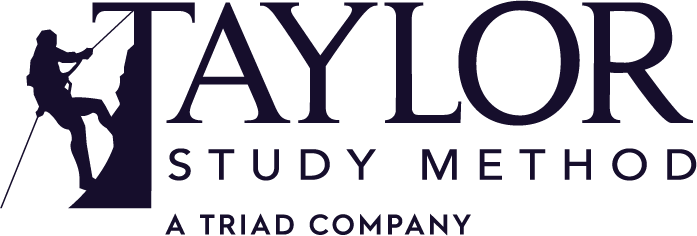Domain Breakdown
EPPP Domain Break Down
EPPP Domain Break Down
Approximately 10% of the EPPP exam is made up of questions focused on the Biological Bases of Behavior. This includes knowledge of the biological and neural bases of behavior, psychopharmacology, and the methodologies supporting this body of knowledge.
Candidates should be able to answer questions on the correlates and determinants of the biological and neural bases of behavior (the neuroanatomy, neurophysiology, neuroendocrinology of patients) and pertaining to perception, cognition, personality, and mood and affect in normal, acute and chronic disordered states and/or acute and chronic disease.
Additionally, candidates need to be able to correctly answer questions relating to the drug classification of therapeutic agents and drugs of abuse, including anxiolytics, antidepressants, antipsychotics, mood stabilizers, cognitive-‐enhancing agents, opiates, psychostimulants. Additionally, candidates should prepare for questions about pharmacokinetics (administration, distribution, metabolism, elimination) and pharmacodynamics as they relate to the desired and non-desired, acute and chronic effects of therapeutic drugs, abused drugs, and common interactions with other drugs, foods, and herbal or alternative remedies.
In addition to administering the EPPP, the ASPPB coordinates the cooperative efforts and communication of the individual state and province licensing boards, maintains a Disciplinary Data Bank, issues a Certificate of Professional Qualification in Psychology (CPQ), advocates for the widespread acceptance of the CPQ and the ASPPB Agreement of Reciprocity (AOR), maintains a Credentials Verification Program (CVP), and provides a Score Transfer Service.
Questions will be asked about the results from multi-center trials and guidelines for pharmacological, somatic, and combined treatment of psychological and neuropsychological disorders.
The fourth coverage area in this section includes multiple-choice questions about behavioral genetics, the transmission and expression of genetic information and its modification (e.g., gene‐environment interactions) and the role of this information in understanding diseases and disorders (e.g., substance abuse disorders, neurodegenerative disorders, pervasive developmental disorders). Special attention should be paid to the consideration of these disorders and co-morbidities and population differences in genetic information.
Additionally, questions relating to the interaction of developmental, gender, ethnic, cultural, environmental, and experiential factors with the biological and neural bases of behavior will be covered by the exam.
Finally, this section covers the applications of brain imaging methods that describe structure and function, electrophysiological methods, therapeutic drug monitoring techniques, and genetic screening methodologies, and the evidence for their effectiveness.
Candidates can expect questions like the one below to test their knowledge
The central ingredient of the most effective behavioral treatment for agoraphobia is:
- Deep muscle relaxation.
- Prolonged exposure in vivo.
- Shaping of the desired behavior with an implemented reward system.
- Exposure in fantasy.
The content of the EPPP is separated into eight domains as described below. More specific information on the topics covered under each domain may be found on the ASPPB website.
Domain 1
Biological Bases of Behavior (10%) – knowledge of:
- biological and neural bases of behavior
- psychopharmacology
- methodologies supporting this body of knowledge
Domain 2
Cognitive-Affective Bases of Behavior (13%) – knowledge of:
- cognition
- theories and empirical bases of learning, memory, motivation, affect, emotion, and executive function
- factors that influence cognitive performance and/or emotional experience and their interaction
Domain 3
Social and Cultural Bases of Behavior (11%) – knowledge of:
- interpersonal, intrapersonal, intergroup, and intragroup processes and dynamics
- theories of personality
- diversity issues
Domain 4
Growth and Lifespan Development (12%) – knowledge of:
- development across the full life span
- atypical patterns of development
- the protective and risk factors that influence developmental trajectories of individuals
Domain 5
Assessment and Diagnosis (16%) – knowledge of:
- psychometrics
- assessment models and instruments
- assessment methods for initial status of and change by individuals, couples, families, groups, and organizations/systems
- diagnostic classification systems and their limitations
Domain 6
Treatment, Intervention, Prevention, and Supervision (15%) – knowledge of:
- individual, couple, family, group, organizational, or community interventions for specific problems/disorders in diverse populations
- intervention and prevention theories
- best practices and practice guidelines
- consultation and supervision models, and (e) evidence supporting efficacy and effectiveness of interventions
Domain 7
Research Methods and Statistics (7%) – knowledge of:
- research design, methodology, and program evaluation
- instrument selection and validation
- statistical models, assumptions, and procedures, and (d) dissemination methods
Domain 8
Ethical/Legal/Professional Issues (16%) – knowledge of:
- codes of ethics
- professional standards for practice
- legal mandates and restrictions
- guidelines for ethical decision-making
- professional training and supervision
Free TSM Trial
Test drive the TSM program for FREE! Gain immediate access to a sample study session, practice questions, and our EPPP resources.
Free EPPP eBook
In this Essential Guide to the EPPP, we’ll answer these questions and shine some light on the specifics of your licensing exam.
Read More
Master EPPP Domains
A study prep program that takes you through each domain individually to learn the content.
$299 to get started
